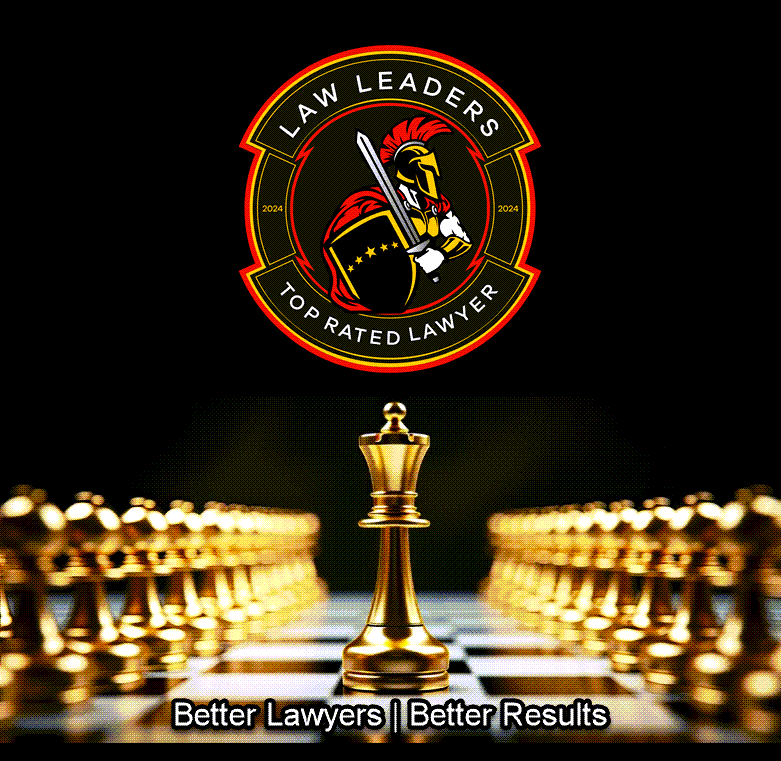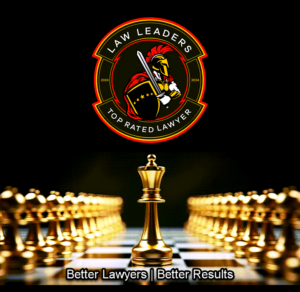
Does a Good Lawyer Make a Difference?
Posted on April 14, 2024 by Law Leaders
Does a good lawyer make a difference?
In the practice law, the debate over the impact of a good lawyer has been a longstanding one. Some argue that legal outcomes are primarily determined by the facts of the case and the applicable laws, rendering the quality of legal representation inconsequential. Others maintain that a skilled and knowledgeable attorney can significantly influence the outcome of a legal matter. Below we delve into the myriad factors that contribute to the efficacy of legal representation and help answer the age-old question: Does a good lawyer make a difference?
Understanding the Role of a Lawyer:
Before delving into the impact of a good lawyer, it’s essential to understand the multifaceted role that lawyers play in the legal system. Successful lawyers serve as advocates, counselors, negotiators, and more, depending on the nature of the legal matter. Their responsibilities encompass everything from providing legal advice to representing clients in court proceedings.
The Influence of an Experienced Lawyer:
One of the primary arguments in favor of the importance of a good lawyer is the influence of legal expertise. A skilled attorney possesses in-depth knowledge of the law, including relevant statutes, precedents, and legal procedures. This legal experience and expertise allows them to navigate complex legal issues with precision and effectiveness. Moreover, a competent lawyer can anticipate potential challenges and devise strategic solutions to overcome them.
According to a survey conducted by the American Bar Association, 83% of respondents agreed that legal expertise is a critical factor in achieving successful outcomes in legal matters. Additionally, a study published in the Journal of Empirical Legal Studies found that cases represented by experienced attorneys were more likely to result in favorable settlements or verdicts compared to those with less experienced representation.
The True Costs of Hiring a Bad Lawyer
As the adage goes, “If you think a lawyer is expensive, wait until you hire a bad one.” This sentiment underscores the critical importance of selecting the right legal representation. Studies have consistently demonstrated that while the cost of legal services is a significant consideration, the potential consequences of hiring an incompetent attorney far outweigh any financial savings.
Research conducted by legal advocacy groups has revealed alarming trends among individuals who opt for cheaper or less experienced legal representation. According to a survey conducted by the American Bar Association, nearly 60% of clients who based their hiring decisions solely on low fees reported dissatisfaction with the quality of service they received.
The repercussions of entrusting your case to an inadequate, not expensive lawyer can be profound. Beyond financial implications, such as the cost of rectifying legal errors, there are often emotional tolls associated with unfavorable outcomes. Therefore, it is imperative to prioritize the selection of a competent and reputable legal professional who can effectively advocate for your rights and interests. Remember, the stakes are high, and the consequences of choosing poorly can be significant.
Case Preparation and Strategy:
Central to the success of any legal matter is thorough case preparation and strategic planning. A good lawyer invests considerable time and effort in gathering evidence, conducting legal research, and formulating a compelling argument. They analyze the strengths and weaknesses of their client’s case and develop a strategic approach to achieve the desired outcome. From witness preparation to motion practice, every aspect of case preparation is meticulously managed by a competent attorney.
Advocacy Skills and Persuasion:
In the courtroom, the ability to advocate persuasively can make all the difference. A skilled lawyer possesses strong advocacy skills, which enable them to articulate their client’s position convincingly before judges and juries. Effective courtroom advocacy involves not only presenting evidence and legal arguments but also connecting with the decision-makers on an emotional level. Through persuasive storytelling and compelling rhetoric, a good lawyer can sway opinions and secure favorable outcomes for their clients.
Negotiation and Alternative Dispute Resolution:
Litigation is not always the most desirable or cost-effective method of resolving legal disputes. In many cases, negotiation and alternative dispute resolution (ADR) techniques offer a more efficient path to resolution. A good lawyer excels in negotiation, leveraging their knowledge of the law and their understanding of their client’s objectives to achieve favorable settlements. Whether in mediation or arbitration, skilled advocacy can lead to mutually beneficial agreements that avoid the uncertainties of trial.
According to a report by the American Bar Association, approximately 95% of civil cases are resolved through settlement rather than trial. Skilled negotiators are often able to achieve more favorable outcomes for their clients through strategic negotiation tactics and effective communication.
The Importance of Client Communication:
Effective communication is fundamental to the attorney-client relationship. The majority of bar association complaints against lawyers typically involve poor lawyer to client communication skills. A good lawyer maintains open and transparent communication with their clients, keeping them informed about the progress of their case and explaining legal concepts in a clear and accessible manner. By fostering trust and collaboration, an attorney can empower their clients to make informed decisions and actively participate in the legal process.
Ethical Considerations and Professional Conduct:
Beyond legal expertise and advocacy skills, the integrity and ethical conduct of a lawyer are paramount. Upholding the principles of professional responsibility and ethical behavior is essential to maintaining the integrity of the legal profession. A good lawyer adheres to the highest standards of ethics, ensuring that their actions are guided by principles of fairness, honesty, and justice.
Illustrating the Impact of Legal Representation:
To illustrate the tangible impact of a good lawyer, there are many case studies across different areas of law showing the impacts of good versus bad legal representation. These real-world examples demonstrate how skilled legal representation can shape outcomes and affect the lives of individuals and communities. From landmark Supreme Court decisions to high-stakes corporate litigation, these cases underscore the pivotal role that successful lawyers play in the pursuit of justice.
Why Hire an Experienced, More Expensive Lawyer?
In summary, the question of whether a good, even more expensive lawyer makes a difference is unequivocally answered in the affirmative. Legal expertise, strategic advocacy, effective communication, and ethical conduct are just some of the many factors that distinguish competent legal representation. From guiding clients through complex legal matters to advocating for their rights in court, a skilled and experienced lawyer can profoundly impact the outcome of a legal dispute. As defenders of the rule of law, successful lawyers play an indispensable role in upholding the principles of fairness and equity in society.

